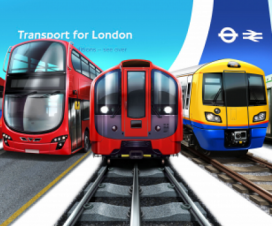
Some industry insiders are reporting that more of us could be spending our summer holidays close to home, after the recent vote to leave the EU. Brexit, as it has become known, left the Pound weaker and foreign holidays became instantly more expensive. Thanks to a period of uncertainty as the UK looks to make a deal with the EU, one of the only sectors to benefit could be tourism.
Nick Varney, the chairman of Merlin Entertainment, who own Legoland, Alton Towers and Madame Tussauds, said that a weaker currency, in particular the pound against the Euro is ‘good news’ for UK tourism. He added that in previous instances where the Pound has reached 1.4 Euros, there has been a fall in the amount of foreign visitors. However, when the Pound falls, the reverse occurs and the UK becomes more affordable and attractive to visitors from overseas. Mr Varney added that if the Pound is able to stabilise at a competitive rate, this will be good news for UK tourism, which in turn is vital to the economy.
Mr Varney’s views were echoed by a representative from the tourist agency Visit Scotland, who said that a ‘big percentage’ of overseas tourists come from the EU. Meanwhile, a Belgian businessman told media that he was planning to visit the UK more often as a result of the weaker Pound, stating that the rate makes the UK ‘much more attractive’ to him.
In the UK, tourism is one of the biggest contributors to the economy. It is estimated to be worth £121.1 billion per year, which is around 7% of the economy, according to the Tourism Alliance. It’s said that around four million people work within the tourism sector. According to ABTA, nine million tourists came to the UK from EU countries, accounting for 44% of all the overseas visitors in the UK, adding up to around £9.5 billion a year.
The Chief Executive of HF Holidays, who specialise in walking holidays, said that he believed the longer term value of the Pound may hold the key to the UK tourism industry. He said that in previous years, fluctuations in currency created a slight movement in the amount of inbound/outbound passengers. However, most travellers aim to book in advance of up to a year, meaning that some travel companies are affected more by longer term currency changes, rather than short term fluctuations.
However, not all holiday companies believe that Brexit will affect them so greatly. Center Parcs, who run five holiday villages in the UK, says that the parks regularly have ‘over-demand’ and the villages are full all around the year.
There is also further evidence to show that people who have already paid for trips overseas are unlikely to change their plans, just because they may get less spending money. It is mostly people who haven’t booked yet who are changing their plans.
Some industry experts are also questioning the effect of domestic tourism, in particular how it will be hit by a fall in the number of business travel, who are always more important to hotels than leisure visitors. A leading hotel consultant said that hotels need twice the amount of leisure visitors in order to make up for the amount of business travellers who have cancelled reservations. This is because hotels earn much more from corporate visitors. He added that whilst the weakening pound will help to draw in new business, it won’t be enough to replace the amount of corporate travellers who are not coming to the UK. The reason many business travellers are cancelling visits is due to the political uncertainty, which is seeing international businesses put off making deals with the UK until it outlines the plan to leave the EU.
The hotel expert said that he believes the hotel industry will face a ‘slowdown’, rather than a ‘meltdown’. Ever since last year, demand for hotel reservations has been slowing, due to uncertainty over the referendum. So whilst this is bad news for hotels, it is good news for domestic travellers looking for a cheap room.
Check out Premier Inn or Travelodge to see if you can take advantage of a hotel bargain.



